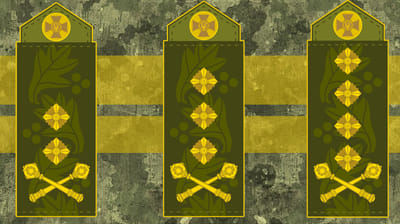Security and staff: what challenges do educational institutions face in frontline oblasts?
The majority of schools in Kherson, Mykolaiv, Zaporizhzhia and Kharkiv oblasts have reported a tense security situation at the beginning of the school year.
Source: data from a survey conducted by the Vostok SOS Charitable Foundation jointly with the Kharkiv Institute for Social Research in the summer of 2023.
Details: A total of 41% of schools in the south and east of Ukraine are located on the temporarily occupied territory.
A third of educational institutions reported threats of bombardment and mining.

"We have been hearing explosions; sometimes drones are being shot down near the settlement," says educational staff in Kherson Oblast.
Only 19% of schools in the frontline areas described the security situation as calm and safe.
"The artillery pounding never ceases, we hear fire from the contact line, and neighbouring settlements are constantly being hit," people in Zaporizhzhia Oblast say.
Notably, only 46% of educational institutions in the frontline areas have their own shelters.
Another 40% of shelters need to be repaired and equipped.
The staffing of the teaching personnel varies depending on the institution and location.
80% of the schools involved in the survey only have 10-50 staff members.
Half of the educational institutions are fully staffed.
The personnel of 58% of schools have not moved [abroad – ed.] since the beginning of the full-scale invasion.
Meanwhile, 64% of schools reported having teachers with internally displaced persons (IDPs) status.
Less than 10% of educational institutions relocated to another settlement or oblast as a whole.
A third of schools have part of their teaching staff under occupation. Most of them are teachers from institutions located in the temporarily occupied territories.
Only two schools reported that over 90% of their teachers remained in the temporarily occupied territory.
Physics, mathematics, and chemistry teachers are mostly in short supply, followed by biology, foreign languages, computer science, and history.
17% of general secondary education institutions indicated that they do not have psychologists on staff. This fact can severely impact children who have experienced traumatic events and stress due to the war.
The monitoring of readiness was conducted in July and August 2023. The survey involved 220 general secondary education institutions from Kherson, Mykolaiv, Luhansk, Zaporizhzhia and Kharkiv oblasts.
The surveyed schools in Luhansk Oblast are displaced and operate remotely due to the temporary occupation of part of the oblast. A similar situation is observed among some schools in Kherson and Zaporizhzhia oblasts.
Ukrainska Pravda is the place where you will find the most up-to-date information about everything related to the war in Ukraine. Follow us on Twitter, support us, or become our patron!





